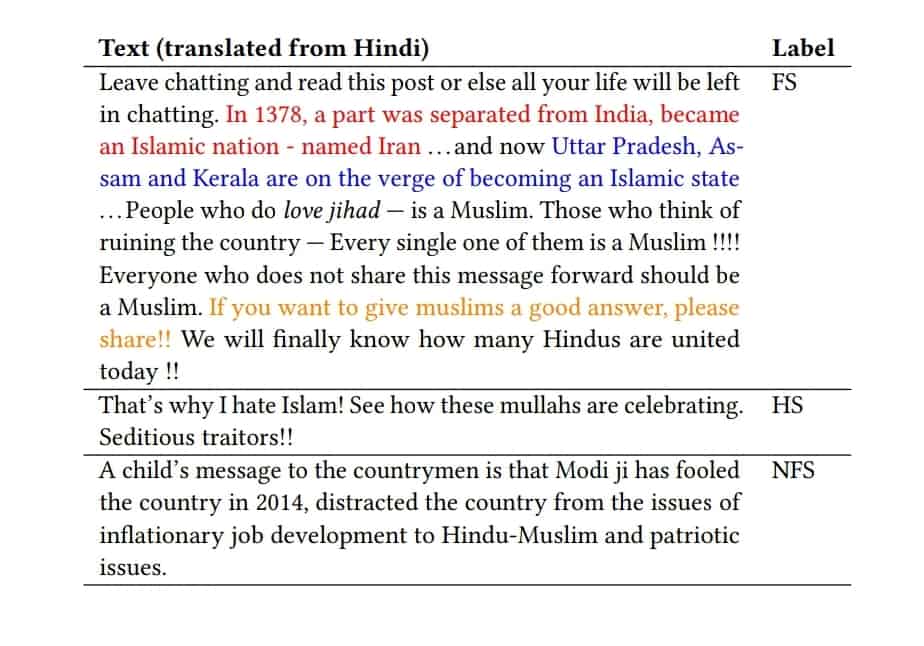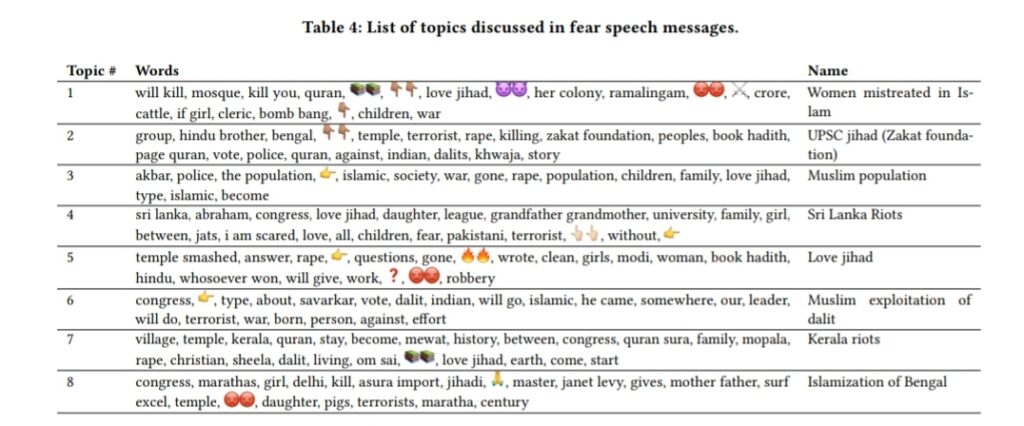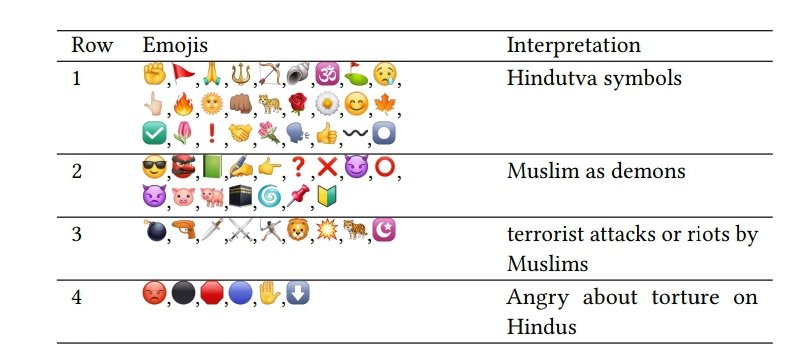Hyderabad: A study has found that messages and information shared on Indian WhatsApp groups have extensively used ‘fear speech’ to instill fear among the majority Hindus against the minority Muslim population of the country.
The study titled ‘Short is the road that leads from fear to hate: Fear speech in Indian Whatsapp groups’, is a collaborative effort between researchers from IIT Kharagpur and MIT Institute of Data, Systems, and Society and was presented at the Web Conference 2021.
Fear speech, not to be confused with hate speech, is a way of framing a group of the population as a threat using false information to create a sense of fear among the readers.
Hate speech usually contains derogatory and hateful language that can be detected using several modern and state-of-the-art tools. These tools however were found to have performed poorly while detecting fear speech. The survey found that fear speech messages spread faster and for longer periods compared to non-fear speech messages.

For this study, around 5000 politically active Whatsapp groups were identified using lists publicized on websites and social media platforms like Facebook. Messages collected were from the time period of August 2018 – August 2019, during which several major events and incidents like the Pulwama attack and General Election 2019 took place.
Researchers studied nearly 27,000 messages manually and built new technology to detect fear speech. They categorized topics and related keywords used in fear speech. Love Jihad, UPSC Jihad, Islamization Bengal are some of the most discussed topics.

The survey also found that fear speech is amplified by the usage of emojis. 52% of all messages with fear speech used emojis. The red flag emoji () was used as the Hindutva Flag (Bhagwa), the conch shell (
) was used to represent purity in Hinduism, the green book (
) was used to represent the holy Quran.

As part of the study, Facebook ads were used to survey people sending these fear speech messages. It has been found that users who post such messages occupy important positions in these networks.
The survey also found that the large number of users who are likely to believe in fear speech, significantly believe or support anti-Muslim issues like support for the Citizenship Amendment Act (CAA) and belief in fake news surrounding Nizamuddin Markaz.
Kiran Garimella, one of the four researchers behind the study wrote on Twitter, “When looking for hate speech, we realized that most hate speech against Muslims is in the form of stoking fear among the majority community.”
He added that this isn’t just a tactic used in India. “This is one of the most common anti-semitic tropes in use. But the context we study: India (BJP, Hindu nationalism, etc) + WhatsApp (zero content moderation) is extremely important,” he added.
Whatsapp, does not have concrete fact-checking or content moderation mechanisms. It is this drawback that led to the large scale spread of misinformation via Whatsapp groups. The study emphasizes the importance of educating the users on fact-checking and community discussion.
Researchers also suggest developing a client-side classifier that resides on the users’ phones. Another solution offered is to test fear speech detection models on public data available on social networks and later use them on closed platforms like Whatsapp.

